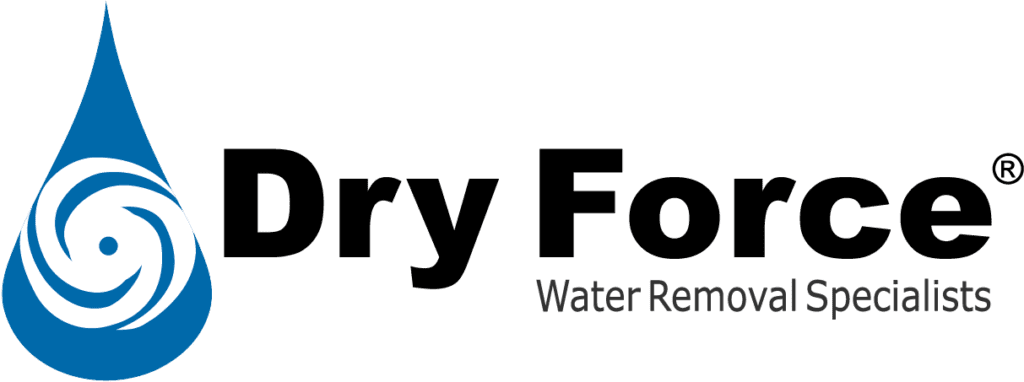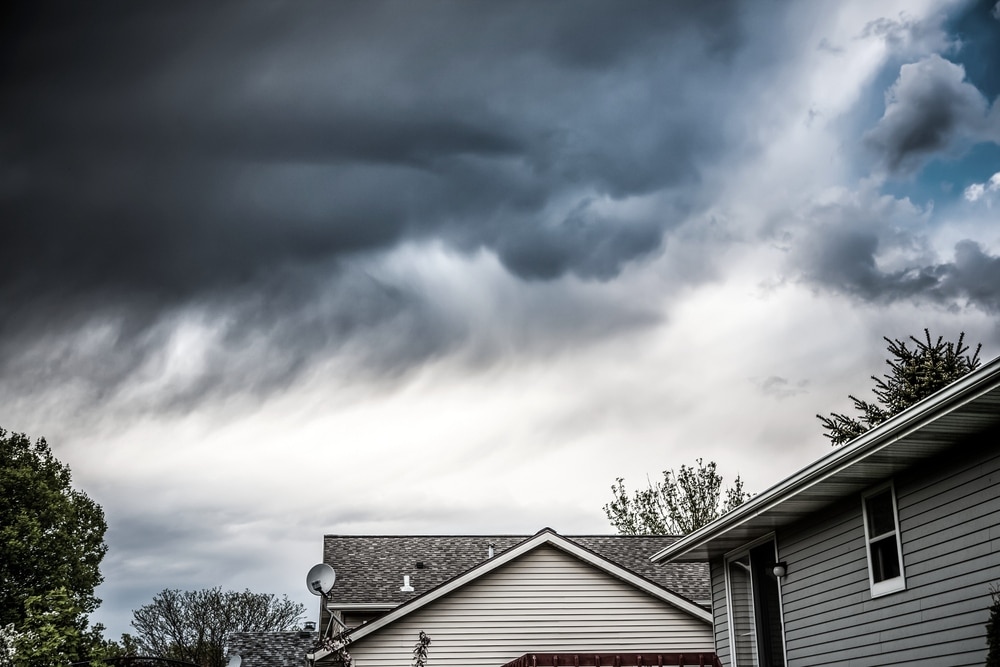
In a majority of cases stormwater runs off roofs, driveways, and streets into nearby trenches or bodies of water. Pollutants in stormwater can end up in local waterways and impact fish, birds, and other aquatic life.
If your home is filled with water due to a severe storm, it is important to be familiar with the contaminants in water to ensure you are able to protect your health. A large number of everyday activities lead to pollution in stormwater. To help you avoid health issues, we have created an outline of various types of contaminants in water and ways to respond to water damage.
Table of Contents
What Is Urban Stormwater Runoff?
Urban stormwater runoff is a term used to describe rainwater and melting snow that flow across several types of landscapes and surfaces.
If not managed properly, urban stormwater can overwhelm a city’s drainage system and surrounding bodies of water, causing long-term environmental damage. Stormwater can cause flooding, erosion, and pollution leading to large environmental, health, and economic issues.
How Stormwater Collects Contaminants
Excessive rain or snow creates high levels of water throughout the year. This stormwater moves across impermeable surfaces such as asphalt and concrete and collects trash, debris, and other pollutants.
Urban and suburban areas have a higher likelihood of stormwater runoff because of the paved road to dirt-road ratio. Additionally, harmful chemicals and pesticides in city environments can bind to leaves, branches, and other materials, contributing to a harmful environment.
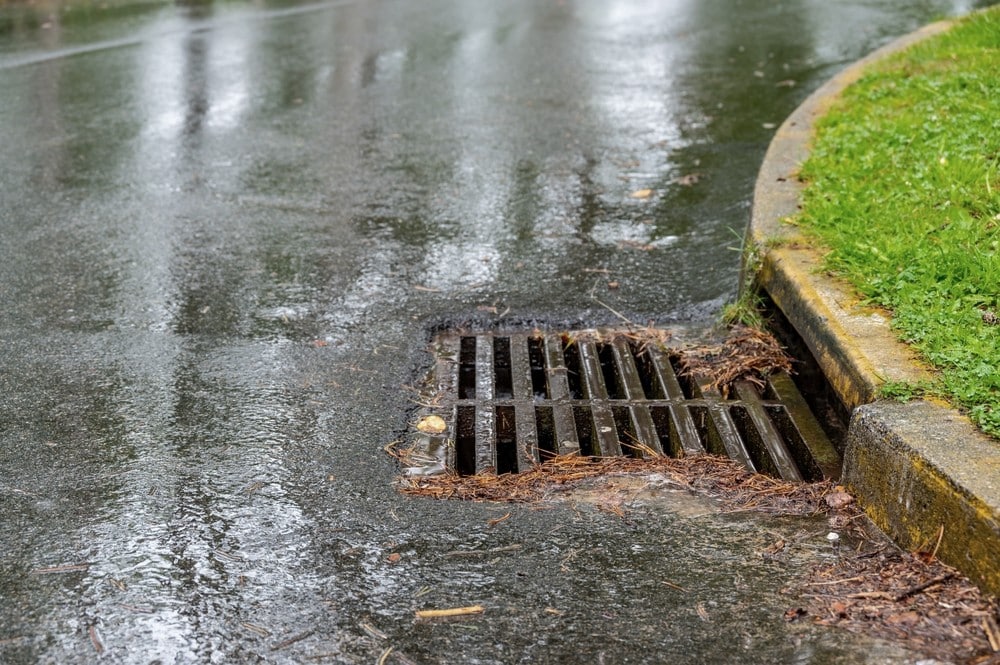
Most Common Types of Stormwater Pollutants
When it rains heavily in the area, stormwater flows through streets, parking lots, and driveways, picking up any pollutants in the way. Below, we have listed the most common types of stormwater pollutants.
1. Chemical Pollution
Chemical pollutants are highly toxic and can poison aquatic life and plants when introduced to local bodies of water. These contaminants include the following items:
- Antifreeze
- Pharmaceuticals
- Fuel
- Bleach
- Automotive leaks
- Detergents
- Tire byproducts
2. Litter
Non-biodegradable trash materials are commonly found in stormwater. The types of items that qualify as litter include:
- Plastic
- Cigarettes
- Styrofoam
- Cans
- Food wrappers
- Paper
3. Natural Pollution
Natural pollutants in stormwater include nutrients like phosphorus and nitrogen. These pollutants come from fertilizers and commonly lead to algae and other growth. Examples of natural pollution include:
- Grass clippings
- Leaves
- Pet waste
- Other organic materials
4. Gross Pollutants
Gross pollutants in stormwater include bacteria from pet waste, sediment from negligent construction sites, and contents of faulty septic systems.
Other Well-Known Stormwater Pollutants Include:
- Bacteria
- Excess nutrients
- Heavy metals
- Oils and grease
- Sediments
- Dirt
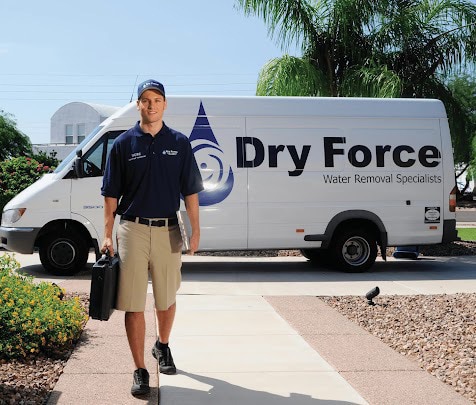
4 Negative Effects of Stormwater Damage to Your Home
1. Electrical Damage
Electricity and water are a potentially deadly combination. Electrical boxes, outlets, and wiring that have been exposed to water should always be inspected by a professional.
Keep an eye out for water damage in these spaces:
- Low-mounted electrical outlets
- Kitchen appliances
- Washing machines
- Furnaces
- Hot water tanks
2. Devalued Property
It’s nearly impossible to hide water damage. In addition to a foul smell, you’ll see warped flooring and walls. If untreated, water damage will devalue your property and repel potential buyers.
Tips and Insights: Is a Rusted Chase Top Causing Your Chimney to Leak?
3. Mold
In as little as 48 hours, mold can grow and spread throughout your commercial or residential property. Contact a professional restoration company for immediate service if your home has experienced excessive water damage.
4. Structural Damage
Nothing is more important than the structural integrity of your home. Stormwater can cause damage to the foundation of your house and endanger your family and friends.
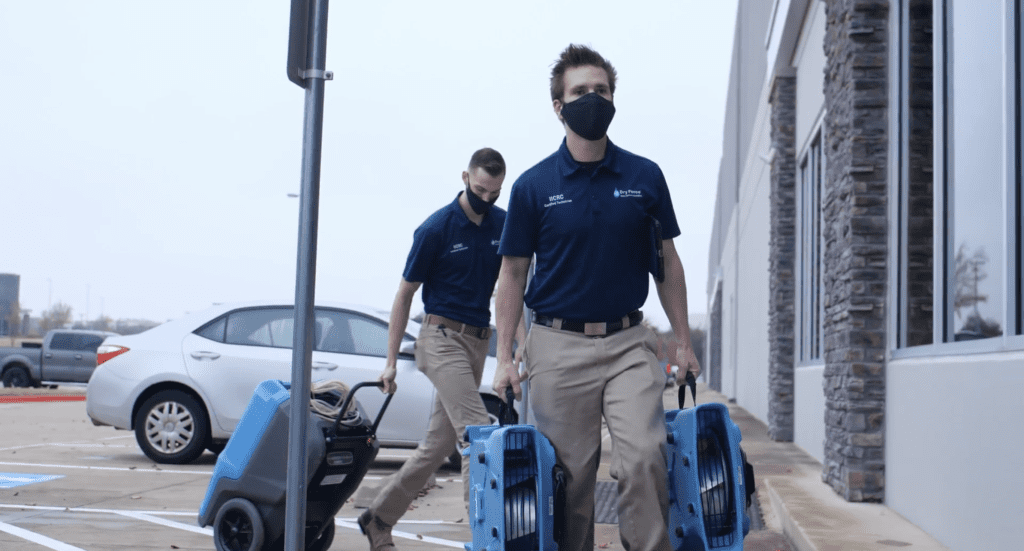
Storm Damage Repair & Restoration Services By Dry Force
Clear water doesn’t mean clean water. Stormwater can contain pollutants such as parasites and bacteria. Luckily, the contractors at Dry Force offer exceptional storm damage repair or restoration services for homes and businesses in the local area.
We offer fast water and flood damage restoration services in Houston, TX and other areas. In addition, we offer other types of restoration solutions such as roof leak repair, sewage backup restoration, and burst pipe maintenance. When you have stormwater damage, don’t ignore the issue. Give our technicians a call at (877) 589-7504 to receive assistance with damaged walls, flooring, insulation, and plumbing.
